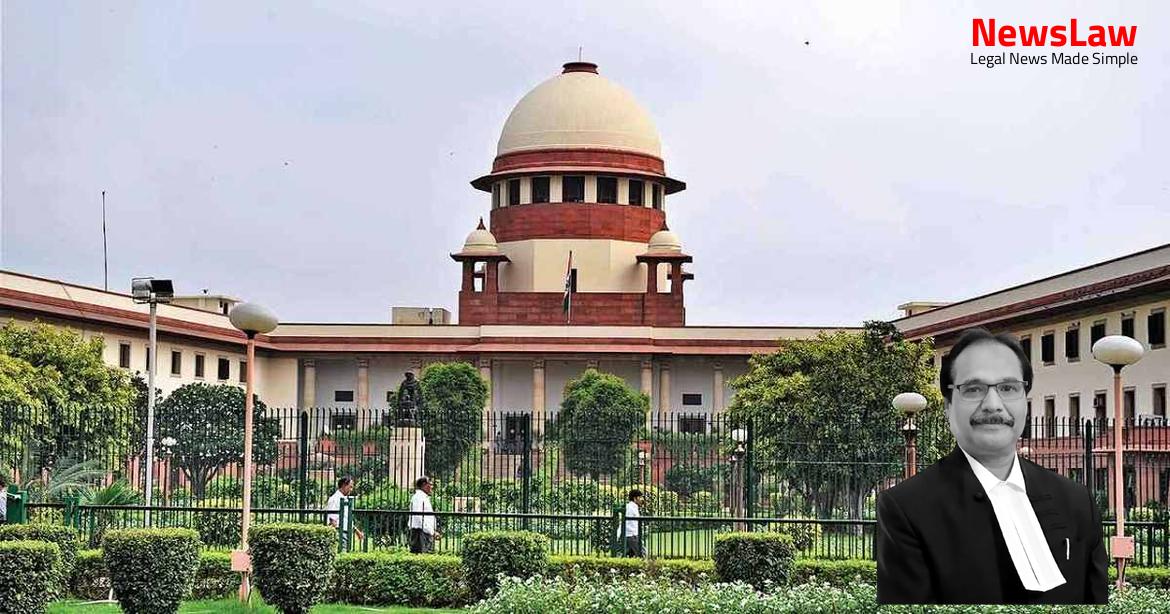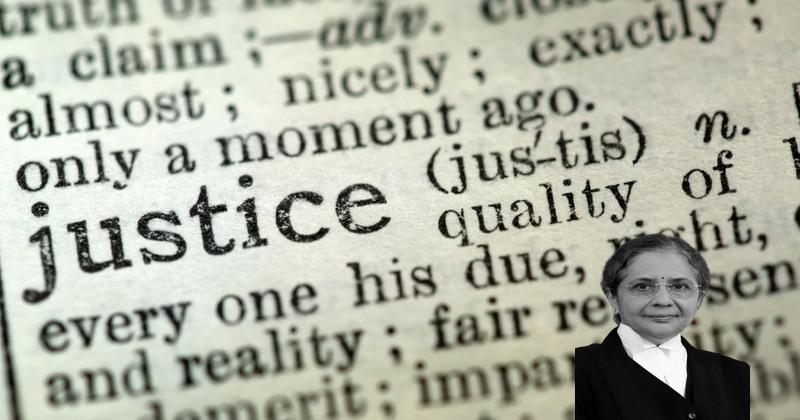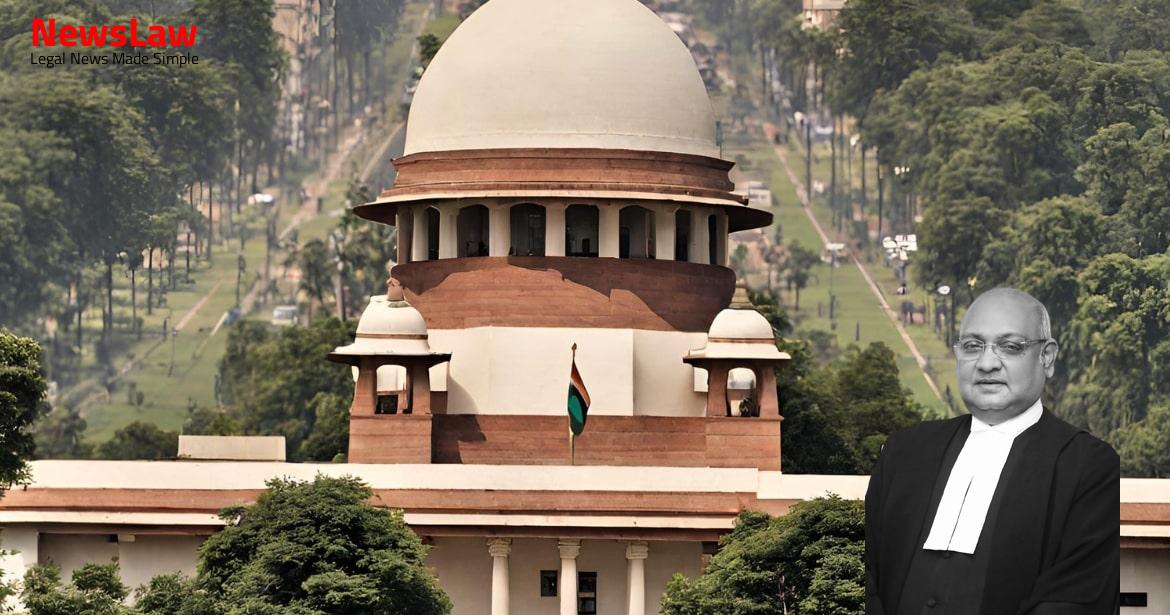The Supreme Court of India recently delivered a significant judgement on the issue of multiple sureties for bail orders, involving a petitioner seeking relief in the case of Unified Sureties. The court’s decision focuses on balancing legal requirements and the practical challenges faced by individuals like the petitioner. This judgement addresses the complexities of sureties in multiple criminal cases spread across different states, highlighting the need for unity and equality in the legal system.
Facts
- The petitioner has filed a Writ Petition under Article 32 of the Constitution of India.
- The petitioner is seeking a Writ or Direction regarding the validity of personal bonds and sureties executed by him in connection with FIR No. 0030 of 2021 registered at P.S. Sadar, District Gurugram.
- The petitioner has already furnished personal bail bonds and one surety in the Trial Court for FIR no. 0030 of 2021.
- The petitioner has also furnished a Personal Bond and two sureties in another case registered at P.S. Tulsipur, Balrampur, Uttar Pradesh.
Also Read: Judgment Summary: Case of Illegal Gratification and Obstruction of Public Servant
Issue
- The question to be considered is whether the petitioner is entitled to have the personal bond and one set of sureties already furnished to be treated as holding good for other bail orders as well.
- The petitioner seeks relief in the form of using the same personal bond and sureties for multiple bail orders.
- There is a need to determine if the court can grant such relief based on the circumstances of the case.
Also Read: Landmark Judgment: Resolving Dispute Between Corporation and Contractor
Arguments
- The petitioner asserts that he was the main breadwinner of the family
- His claim of being the In-charge (Accounts) in the Company is disputed by the prosecution
- The complainants in some FIRs allege that he was the Director of the Company
- The petitioner’s wife, a physically handicapped teacher in a private school, barely earns enough to sustain herself and their son
- The petitioner has an aged mother to take care of
- He maintains that he has complied with the conditions of bail in FIR No. 53 of 2020
- Learned counsel for the petitioner argues that despite bail orders being passed in 11 cases, the petitioner is unable to avail his liberty because of the inability to produce separate sureties as directed.
- The main plea is that the sureties already furnished in two cases should be considered valid for all the other eleven cases as well.
- Counsel prays for a direction to hold the personal bonds and sureties executed in connection with FIR No.0030 of 2021, dated 21.01.2021, registered at P.S. Sadar, District Gurugram, valid for the other bail orders mentioned in the petition’s prayer clause.
Also Read: Judgment on Age Relaxation and Bonus Marks in Educational Projects
Analysis
- The court analyzed the difficulty faced by the petitioner in finding multiple sureties, which are required for bail.
- It emphasized the need to balance the requirement of sureties with the fundamental rights of the accused under Article 21.
- Citing previous cases such as Satender Kumar Antil vs Central Bureau of Investigation & Anr., the court highlighted the importance of not imposing conditions impossible to comply with.
- The court referred to a specific case, Hani Nishad vs The State of Uttar Pradesh, where a modified order allowed for a single personal bond and two sureties covering multiple cases.
- It mentioned the Court’s order in SMWP (Criminal) No 4/2021 regarding the timely furnishing of bail bonds and potential modification of bail conditions.
- Multiple states were involved in the cases under consideration, and the court outlined specific requirements for each state regarding sureties and bonds.
- The petitioner’s challenge in finding local sureties was highlighted, especially when facing cases spread across different states.
- The court touched upon the potential challenges of language barriers and provincialism in securing sureties.
- The State’s argument regarding separate sureties for different cases was noted, as well as the opposition to consolidating sureties in multiple cases.
- The need for sureties and the practical challenges faced by individuals in arranging them were discussed. The court expressed concern over the requirement for local sureties and its impact on bail conditions.
- The court acknowledged the limited options for individuals to find sureties, often relying on close relatives or friends.
- Overall, the court deliberated on the complexities of sureties in multiple criminal cases across different states and the need to balance legal requirements with practical considerations.
- Section 446 of the Code of Criminal Procedure deals with the procedure when a bond has been forfeited.
- The section specifies that if a bond under the Code is forfeited, it must be proved to the satisfaction of the Court or any subsequent Court that the bond has been forfeited.
- If the bond was for appearance or production of property, the satisfaction of the Court or any subsequent Court is required.
- The bond may also be forfeited in respect of any other bond under the Code, and the satisfaction of the Court by which the bond was taken or any subsequent Court is necessary.
- The section mentions that if a bond is forfeited, the procedure for dealing with the forfeiture must be followed as laid out in the Code of Criminal Procedure.
- Justice Krishna Iyer in the case of Moti Ram and Ors. vs State of Madhya Pradesh (1978) 4 SCC 47 highlighted the issue of geographical discrimination in legal procedures.
- He questioned what a Malayalee, Kannadiga, Tamil or Telugu individual should do if arrested in a different state for alleged criminal activities.
- Justice Iyer emphasized the importance of equality before the law, stating that legal documents in any state language should be accepted throughout India.
- He argued that requiring sureties from the court district implies geographical discrimination and goes against the principle of equality before the law.
- The judge warned against making Indians feel like aliens in their own country and stressed the need for unity and equality under the law.
Decision
- The direction given in the judgement applies to the FIR No 146/2020 registered at P.S. Jwalapur, Haridwar, Uttarakhand.
- The writ petition is allowed based on the provided directions.
- The Court has not addressed FIR No 608 of 2022 dated 13.09.2022 registered at P.S. Vibhuti Khand, District Lucknow, U.P., FIR No 141 of 2023 dated 21.05.2023 registered at P.S. Tulsipur, District Balrampur, U.P., and FIR No 230 of 2020 registered at P.S. Sadarpur, District Jodhpur, Rajasthan.
- The petitioner can pursue independent proceedings for the mentioned FIRs.
- A prayer to allow bail granted in FIR No 222 dated 08.09.2020 for the benefit of the petitioner in connection with FIR No 141 of 2023 is outrightly rejected.
- The petitioner has been granted bail with specific conditions in all cases.
- For FIRs in Uttar Pradesh, Rajasthan, Punjab, and Uttarakhand, the petitioner needs to furnish a personal bond for Rs. 50,000/- and two sureties for Rs. 30,000/- each for all FIRs in the respective states.
Case Title: GIRISH GANDHI Vs. THE STATE OF UTTAR PRADESH (2024 INSC 617)
Case Number: W.P.(Crl.) No.-000149 – 2024



